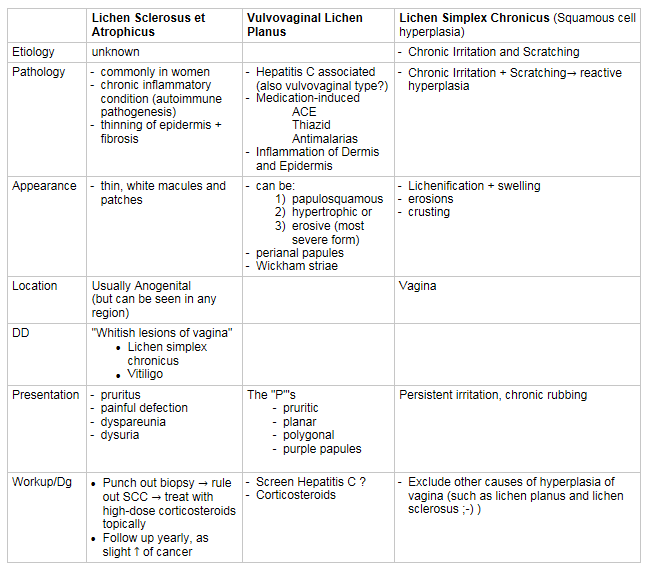- Joined
- Aug 25, 2010
- Messages
- 161
- Reaction score
- 18
Do you have an easy way to remember the differences for Lichen vulva diseases? I think LSC results from scratching and LS from low estrogen. But I am wondering if there is a good way (or buzz words) to get those three conditions right. Thanks in advance.

